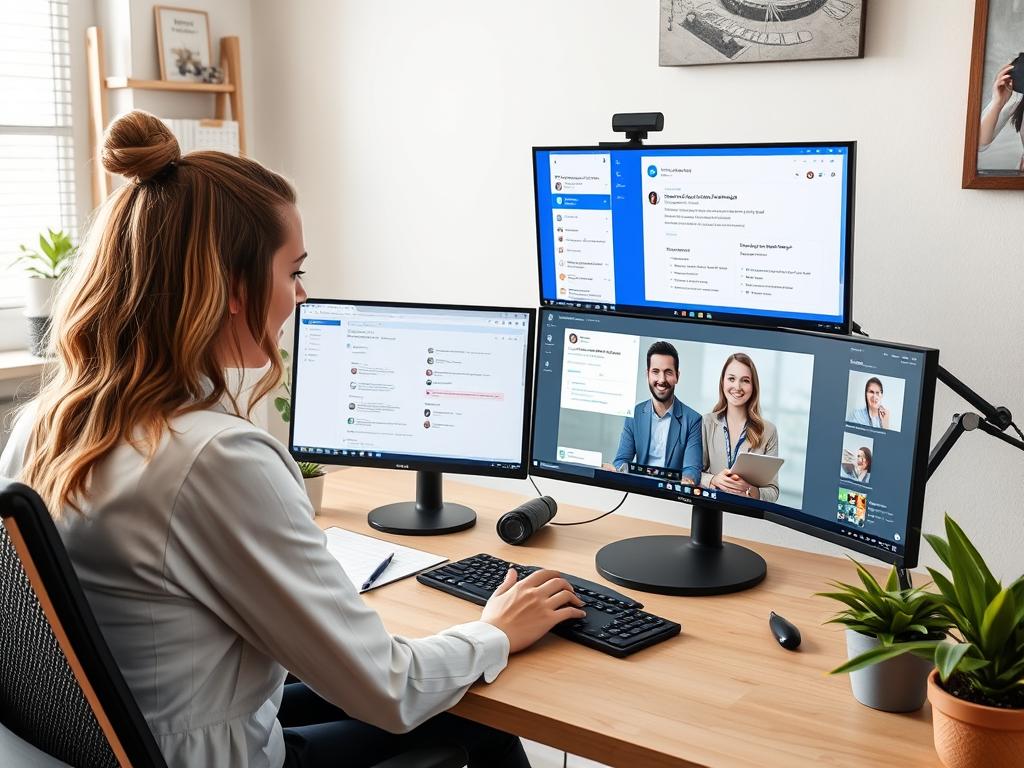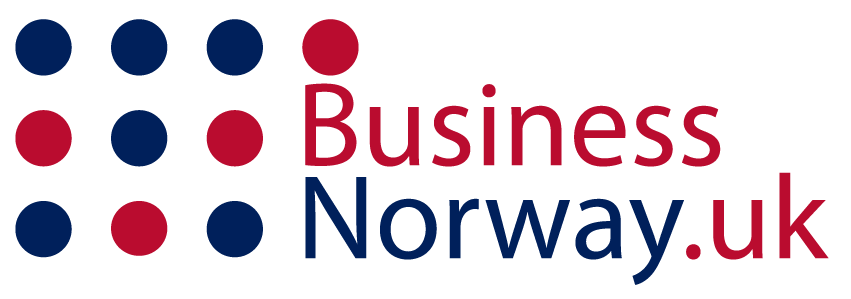Business Ideas Comparison for Foreigners in Norway
Before diving into specific opportunities, let’s compare the top small business ideas in Norway for foreigners based on key metrics including startup costs, profit potential, and regulatory complexity.
| Business Idea | Avg. Startup Cost (NOK) | Profit Potential | Regulatory Complexity | Target Audience |
| Digital Marketing Services | 30,000–80,000 | ★★★★☆ | ★☆☆☆☆ | Local businesses, startups |
| Eco-Tourism Guide | 50,000–150,000 | ★★★★☆ | ★★☆☆☆ | International tourists |
| Translation Services | 10,000–40,000 | ★★★☆☆ | ★☆☆☆☆ | Businesses, institutions |
| Specialty Food Import | 100,000–300,000 | ★★★★☆ | ★★★★☆ | Expats, food enthusiasts |
| E-commerce Store | 50,000–200,000 | ★★★★☆ | ★★☆☆☆ | Online shoppers |
| Language School | 150,000–400,000 | ★★★☆☆ | ★★★☆☆ | Expats, students |
| Eco-Friendly Products | 80,000–250,000 | ★★★★★ | ★★☆☆☆ | Environmentally conscious consumers |
| IT Consulting | 20,000–100,000 | ★★★★★ | ★☆☆☆☆ | SMEs, startups |
| Specialty Café | 300,000–800,000 | ★★★☆☆ | ★★★★☆ | Urban professionals, tourists |
| Virtual Assistant Services | 5,000–30,000 | ★★★☆☆ | ★☆☆☆☆ | Entrepreneurs, small businesses |
Need Help Choosing the Right Business?
Our experts can analyze your skills and budget to recommend the best business opportunity in Norway.
1. Digital Marketing Services

Features
Digital marketing services are in high demand as Norwegian businesses increasingly shift online. As a foreigner, you can leverage your international perspective to help local businesses reach global markets or bring fresh marketing approaches to the Norwegian market.
Market Stats
Norway’s digital marketing sector is growing at 12% annually, with the market size reaching NOK 15.2 billion in 2024. Over 78% of Norwegian businesses outsource at least part of their digital marketing needs, creating consistent demand for specialized services.
Pros
- Low startup costs (primarily software and marketing)
- Location-independent business model
- Minimal language barriers (business English widely accepted)
- High demand from Norwegian businesses seeking international reach
Cons
- Competitive market requiring specialization
- Need to understand Norwegian consumer behavior
- Requires continuous learning to stay current
Specifications
To start a digital marketing business in Norway, you’ll need to register as an enkeltpersonforetak (sole proprietorship) or aksjeselskap (limited company). No specific licenses are required, but certifications in Google Ads, SEO, or social media marketing will boost credibility. Knowledge of GDPR compliance is essential as Norway follows strict European data protection regulations.
2. Eco-Tourism Guide

Features
Norway’s breathtaking landscapes offer perfect opportunities for eco-tourism businesses. As a foreigner, you can create specialized tours that highlight Norway’s natural wonders while incorporating your unique cultural perspective or language skills to attract international tourists.
Market Stats
Tourism in Norway has grown by 8% annually since 2019, with eco-tourism specifically growing at 15%. In 2023, over 2.3 million tourists participated in nature-based activities, generating NOK 7.8 billion in revenue. The Norwegian government actively promotes sustainable tourism initiatives.
Pros
- Leverages Norway’s natural beauty and outdoor culture
- Growing market with strong government support
- Ability to serve tourists in your native language
- Seasonal flexibility (different activities year-round)
Cons
- Seasonal income fluctuations
- Weather-dependent activities
- Requires outdoor expertise and safety knowledge
Specifications
You’ll need to register with the Norwegian Register of Business Enterprises and obtain specific tour guide certifications for certain activities (hiking, skiing, etc.). Insurance is mandatory, and first aid certification is essential. Knowledge of Norwegian outdoor regulations and “allemannsretten” (right to roam) is crucial for operating legally.
“Starting my eco-tourism business in Norway was challenging but rewarding. As a foreigner, I brought a fresh perspective to showcasing Norway’s natural wonders. My advice: invest in proper certifications and insurance from day one.”
3. Translation Services

Features
Your bilingual skills can be a significant asset in Norway. Translation services are in high demand due to Norway’s international economic links and growing immigrant population. Specializing in business, legal, or technical translations can create a profitable niche.
Market Stats
The translation market in Norway is valued at approximately NOK 1.2 billion and growing at 5% annually. Business translations account for 45% of the market, followed by technical (25%), legal (15%), and medical (10%). The demand for specialized translators exceeds supply by roughly 20%.
Pros
- Minimal startup costs (primarily marketing and software)
- Can work remotely or from home
- Directly leverages your native language skills
- Steady demand from businesses and government agencies
Cons
- Requires fluency in Norwegian for many projects
- Competition from large translation agencies
- Project-based work can be inconsistent
Specifications
No specific licenses are required to start a translation business in Norway, but certification from recognized translation associations will boost credibility. For official document translations, you may need authorization from Norwegian authorities. Specialized software like CAT tools is essential for professional work.
4. Specialty Food Import

Features
Norway’s diverse population creates demand for international food products. As a foreigner, you can leverage connections from your home country to import specialty foods, spices, or ingredients that are difficult to find locally but in demand among expat communities and adventurous Norwegians.
Market Stats
Food imports to Norway totaled NOK 70 billion in 2023, with specialty foods growing at 9% annually. The market for international cuisine ingredients has expanded by 25% over the past five years, driven by Norway’s increasingly diverse population and growing culinary interest.
Pros
- Utilizes connections to your home country
- Growing market with limited local competition
- Appeals to both expat communities and locals
- Can start online before expanding to physical locations
Cons
- Complex import regulations, especially for food
- Higher startup costs for inventory and storage
- Perishable products require careful logistics
Specifications
Food importers must register with the Norwegian Food Safety Authority (Mattilsynet) and comply with EU food safety regulations. Import licenses and customs documentation are required. Knowledge of Norwegian food labeling requirements is essential, as all products must have Norwegian labels with ingredients and allergen information.
Important: Norway has strict regulations on food imports. Certain products may be subject to quotas or additional taxes. Always check with Mattilsynet before importing new food items.
5. E-commerce Store

Features
E-commerce continues to grow rapidly in Norway, with Norwegians being among the most active online shoppers in Europe. As a foreigner, you can create an online store targeting specific niches or bringing unique products from your home country to the Norwegian market.
Market Stats
E-commerce in Norway reached NOK 163 billion in 2023, growing at 16% annually. Mobile shopping accounts for 65% of all online purchases. The average Norwegian spends NOK 47,000 online annually, one of the highest rates globally.
Pros
- Scalable business model with growth potential
- No physical location required initially
- High e-commerce adoption rate in Norway
- Can target both Norwegian and international customers
Cons
- Competitive market requiring clear differentiation
- Logistics and shipping can be complex
- Customer service may require Norwegian language skills
Specifications
E-commerce businesses must register with the Brønnøysund Register Centre and comply with Norwegian consumer protection laws. VAT registration is required for annual sales exceeding NOK 50,000. Websites must comply with GDPR and include clear terms and conditions in Norwegian. Payment solutions should include popular local options like Vipps.
“When I started my e-commerce business in Norway, I underestimated the importance of localization. Once I adapted my website and customer service to Norwegian preferences, sales increased by 300% in just three months.”
6. Language School

Features
As a foreigner, you can leverage your native language skills to establish a language school in Norway. While Norwegians generally speak excellent English, there’s demand for other languages for business, travel, and cultural purposes. You can offer specialized courses for professionals, students, or tourists.
Market Stats
The language learning market in Norway is valued at approximately NOK 500 million annually. Business language training accounts for 60% of the market. The most in-demand languages after English are German, Spanish, French, and Mandarin Chinese, with growing interest in Arabic and Polish.
Pros
- Directly utilizes your native language as an asset
- Can start small with private lessons before expanding
- Multiple revenue streams (private, group, corporate, online)
- Cultural exchange opportunities beyond language
Cons
- Physical location costs if expanding beyond online
- Requires teaching skills beyond language knowledge
- Seasonal fluctuations in non-business segments
Specifications
No specific licenses are required to teach languages privately in Norway, but formal teaching qualifications will boost credibility. For larger schools, you’ll need to register as a business and comply with employment regulations if hiring staff. Teaching materials should meet European standards for language education (CEFR).
7. Eco-Friendly Products

Features
Norway’s strong environmental consciousness creates excellent opportunities for eco-friendly product businesses. You can import, manufacture, or distribute sustainable alternatives to everyday products, targeting Norway’s environmentally aware consumers who are willing to pay premium prices for sustainable options.
Market Stats
The eco-friendly product market in Norway is growing at 22% annually, reaching NOK 12.5 billion in 2023. Over 85% of Norwegian consumers report willingness to pay more for sustainable products. Reusable household items, organic cosmetics, and sustainable fashion are the fastest-growing segments.
Pros
- Strong alignment with Norwegian values and priorities
- Growing market with government support
- Premium pricing potential for quality products
- Multiple distribution channels (online, retail, markets)
Cons
- Need for authentic sustainability credentials
- Higher sourcing costs for truly eco-friendly materials
- Educated consumers demand transparency
Specifications
Products must comply with Norwegian and EU regulations regarding materials, chemicals, and labeling. Eco-certifications (Nordic Swan, EU Ecolabel) significantly boost credibility and marketability. For cosmetics and food-adjacent products, additional safety certifications are required.
8. IT Consulting

Features
Norway’s digital transformation creates high demand for IT consulting services. As a foreigner with technical expertise, you can offer specialized IT services to Norwegian businesses looking to innovate and optimize their operations. Focus areas include cybersecurity, cloud migration, AI implementation, or industry-specific solutions.
Market Stats
The IT consulting market in Norway is valued at NOK 45 billion and growing at 14% annually. Small and medium enterprises account for 65% of the market. The highest demand is in cybersecurity (28%), cloud services (25%), digital transformation (20%), and AI/machine learning (15%).
Pros
- High hourly rates and profit margins
- Low startup costs (primarily marketing and software)
- English widely accepted in the IT sector
- Remote work possibilities with local clients
Cons
- Requires specialized technical expertise
- Competitive market with established players
- Need to stay current with rapidly evolving technologies
Specifications
No specific licenses are required for IT consulting in Norway, but industry certifications (AWS, Microsoft, Cisco, etc.) significantly boost credibility. For government contracts, security clearances may be necessary. Professional liability insurance is essential to protect against potential claims.
“The Norwegian IT market values expertise over nationality. As a foreigner, I found clients were more interested in my technical skills and problem-solving abilities than where I came from. Building a network took time, but referrals now drive 80% of my business.”
9. Specialty Café

Features
Norway has a strong café culture, and specialty cafés offering unique concepts or international cuisine can thrive. As a foreigner, you can introduce authentic flavors from your home country or create fusion concepts that blend Norwegian and international elements.
Market Stats
The café market in Norway is valued at NOK 15 billion, with specialty and concept cafés growing at 8% annually. Urban areas like Oslo, Bergen, and Trondheim show the highest demand. Average café spending per Norwegian is NOK 12,000 annually, among the highest in Europe.
Pros
- Opportunity to showcase your cultural heritage
- High coffee consumption in Norway
- Premium pricing potential for quality offerings
- Community-building potential
Cons
- High startup costs for location and equipment
- Complex food safety regulations
- Labor-intensive business model
- Competitive market in urban areas
Specifications
Food handling permits from the Norwegian Food Safety Authority are required. Staff must have food safety certifications. Alcohol licenses (if applicable) involve additional regulations. Location must comply with zoning laws and accessibility requirements. Employee contracts must follow Norwegian labor laws, which are comprehensive.
Pro Tip: Consider starting with a pop-up café or food truck to test your concept before investing in a permanent location. This approach reduces initial costs and allows you to build a customer base.
10. Virtual Assistant Services

Features
Virtual assistant services are increasingly popular as Norwegian businesses seek flexible administrative support. As a foreigner, you can offer remote administrative services, social media management, bookkeeping, or specialized support based on your skills and experience.
Market Stats
The virtual assistant market in Norway has grown by 35% since 2020, with current valuation at NOK 850 million. Small businesses and entrepreneurs account for 70% of clients. The average hourly rate ranges from NOK 350-700 depending on specialization and experience.
Pros
- Lowest startup costs of all business ideas
- Can work remotely from anywhere
- Flexible hours and scalable business model
- Diverse service offerings based on your skills
Cons
- Income directly tied to your available hours
- Some tasks may require Norwegian language skills
- Building initial client base can be challenging
Specifications
No specific licenses are required to offer virtual assistant services in Norway. Registration as a sole proprietor (enkeltpersonforetak) is sufficient to start. Professional liability insurance is recommended. Secure communication tools and project management software are essential for efficient service delivery.
Conclusion: Best Small Business Opportunities in Norway for Foreigners

Norway offers a welcoming environment for foreign entrepreneurs with its stable economy, transparent regulations, and high standard of living. Based on our analysis, the most accessible opportunities for foreigners are IT consulting, digital marketing services, and virtual assistant services, which offer low startup costs and minimal language barriers.
For those with more capital to invest, eco-friendly products and specialty food imports present excellent growth potential due to their alignment with Norwegian values and consumer preferences. Regardless of which business you choose, success in Norway requires understanding local regulations, cultural nuances, and consumer expectations.
What legal requirements do foreigners need to meet to start a business in Norway?
Foreigners need to obtain a Norwegian identification number (D-number) and provide a Norwegian business address. EU/EEA citizens can freely establish businesses, while non-EU/EEA citizens typically need a residence permit with work rights. All businesses must register with the Brønnøysund Register Centre and obtain necessary industry-specific permits.
Ready to Start Your Business Journey in Norway?
Our team of experts can guide you through the entire process, from business registration to market entry strategy. Get personalized advice tailored to your skills, experience, and budget.







